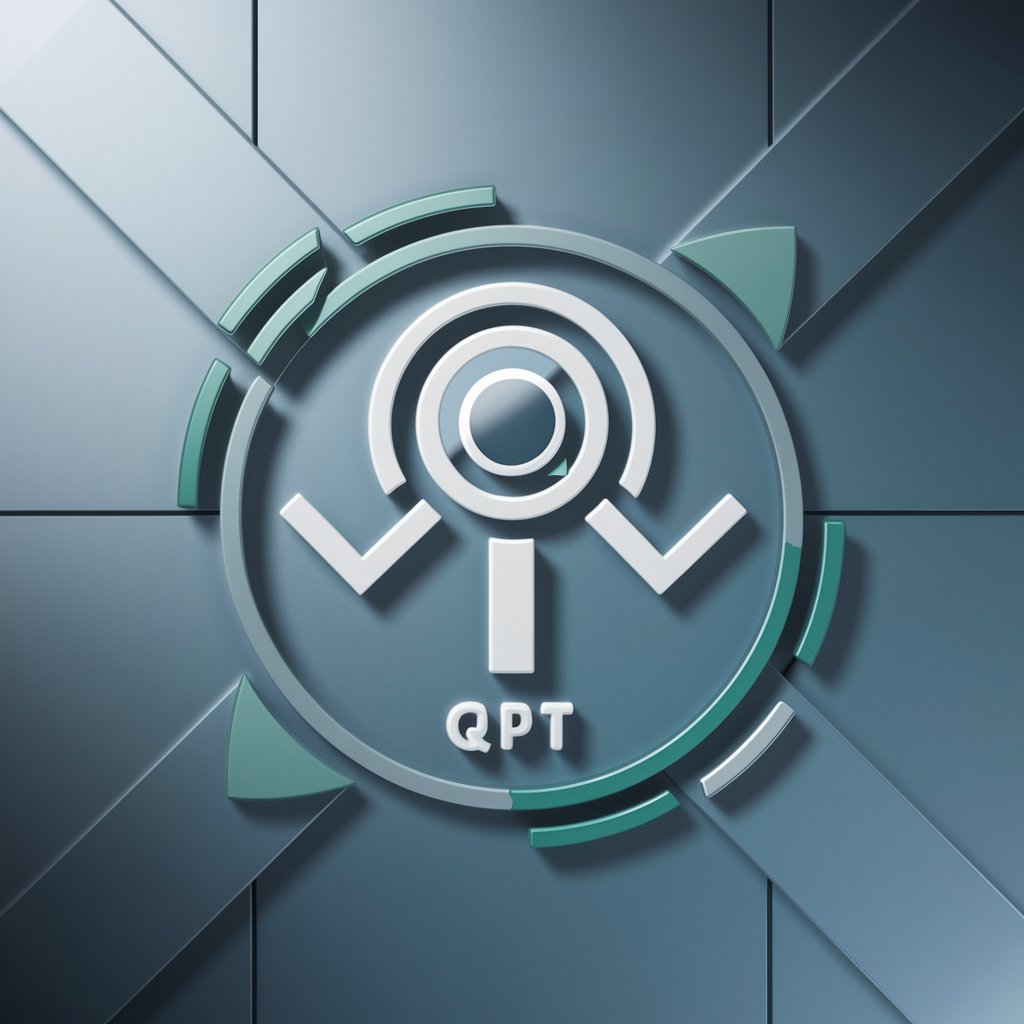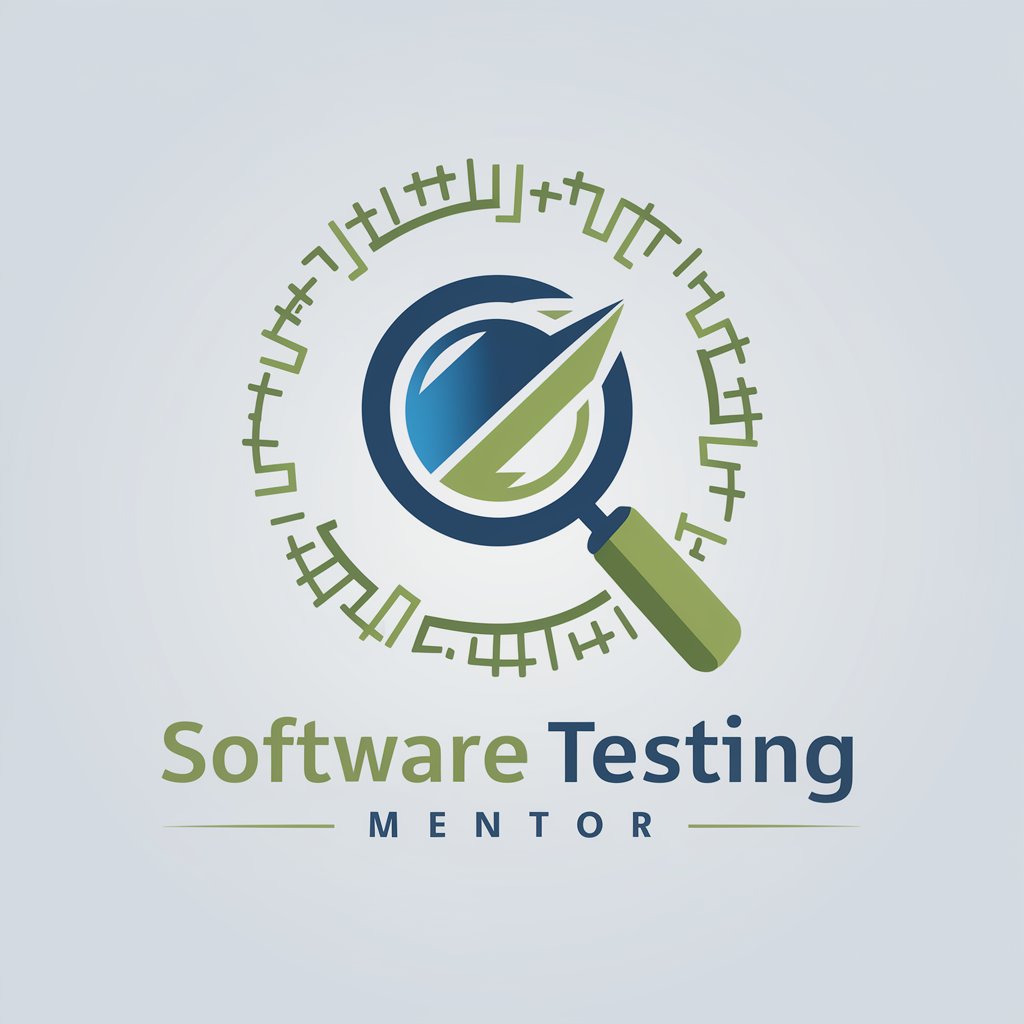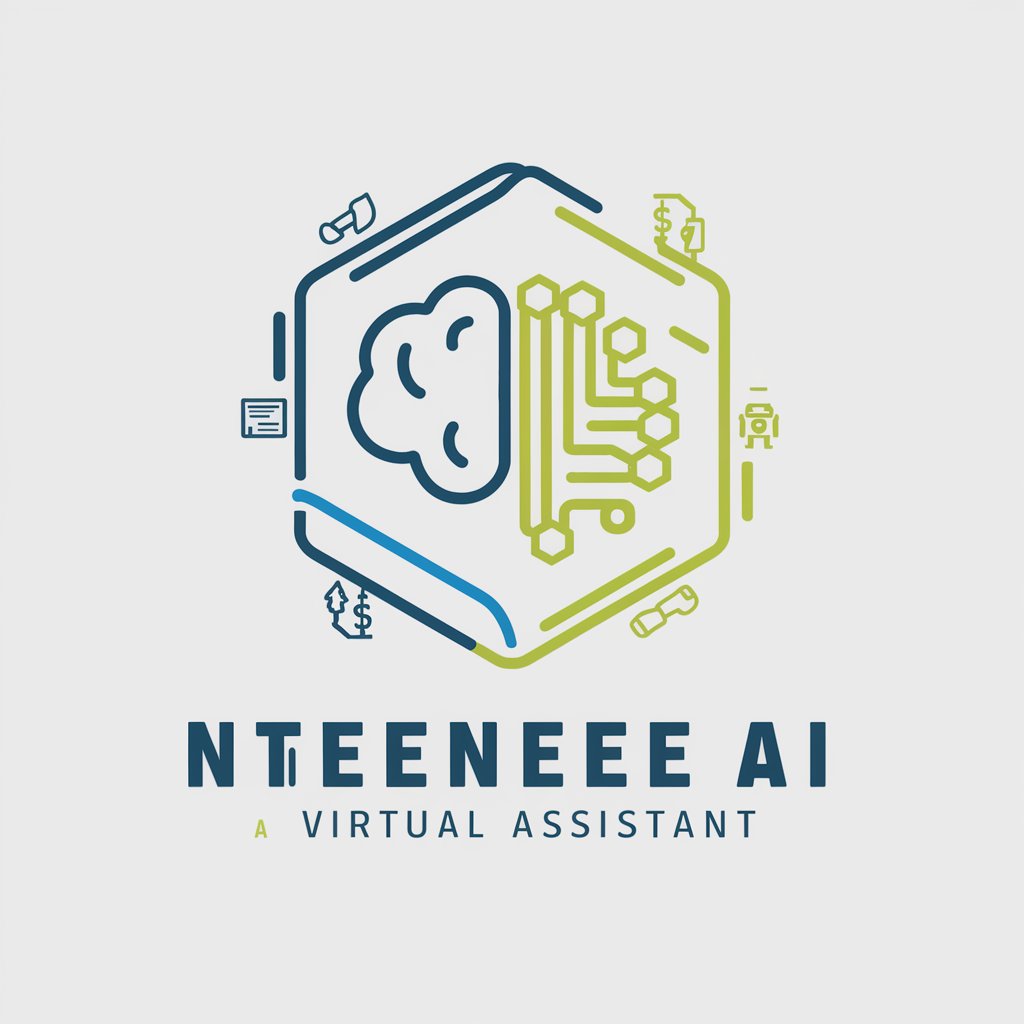
Software Test Engineer - Comprehensive Testing Suite
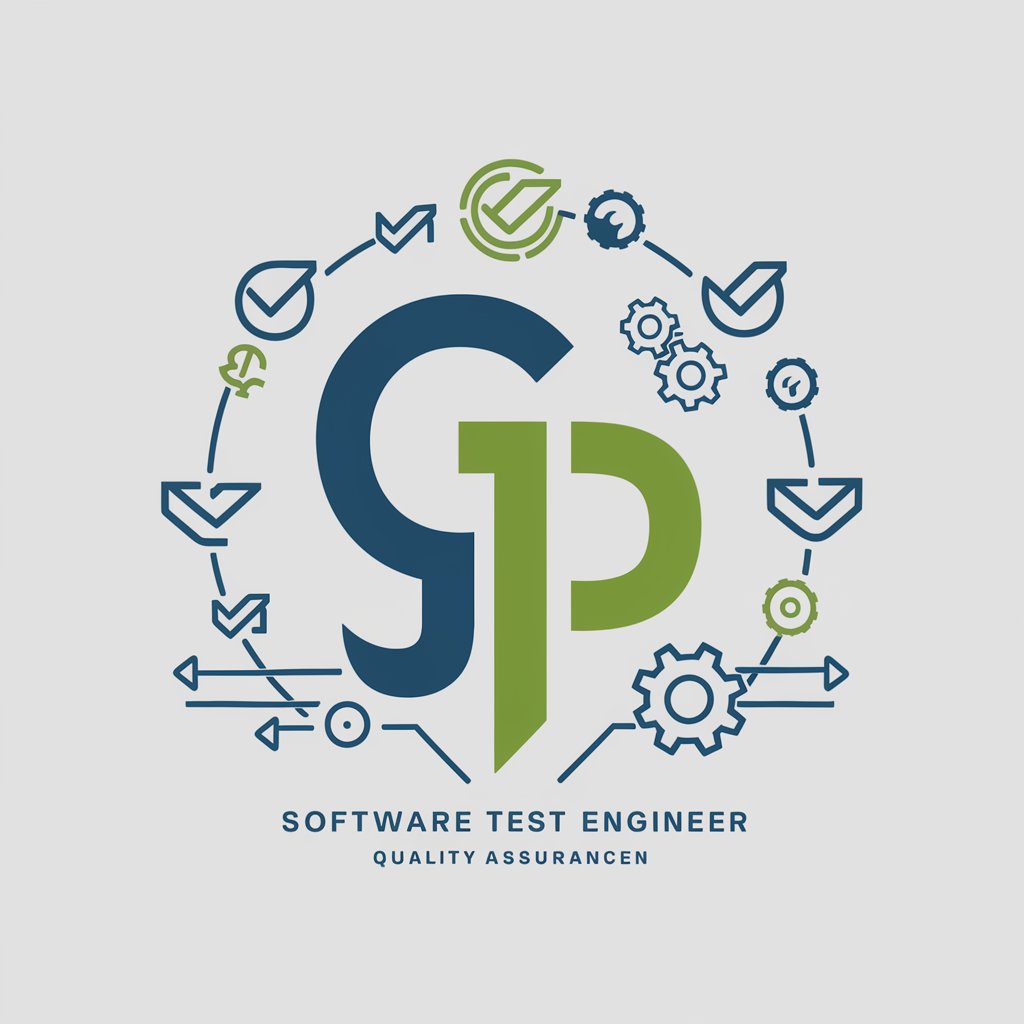
Hello! Ready to elevate your software testing game?
AI-Powered Testing, Simplified
Describe the best practices for automating test cases in a CI/CD pipeline.
Explain the differences between unit testing and integration testing.
Provide a detailed test plan for a new feature in a web application.
Discuss the common challenges faced in software testing and how to overcome them.
Get Embed Code
Overview of a Software Test Engineer
A Software Test Engineer is a professional specialized in assessing software applications to detect issues, bugs, or deviations from the expected behavior. This role involves rigorous planning, executing, and managing of test cases and strategies to ensure the software meets its requirements and is of high quality. The design purpose of a Software Test Engineer encompasses ensuring the reliability, functionality, and performance of software through various testing methodologies such as unit testing, integration testing, system testing, and acceptance testing. For example, in a scenario where a new e-commerce platform is developed, a Software Test Engineer would design test plans to validate user checkout flows, payment processing, and product search functionality to identify any potential issues that could affect the user experience or transaction success. Powered by ChatGPT-4o。

Core Functions of Software Test Engineers
Designing and implementing test plans
Example
Creating a detailed test strategy for a mobile banking app to cover all features including account management, fund transfers, and customer support interactions.
Scenario
This ensures all functionalities work as intended and security measures are effectively in place, preventing unauthorized access or data leaks.
Automating test procedures
Example
Developing automated test scripts using Selenium for a web-based CRM system to verify customer data handling and sales pipeline management.
Scenario
Automation helps in reducing the testing cycle time, allowing for more frequent releases and quicker identification of regression bugs.
Bug tracking and reporting
Example
Utilizing tools like JIRA to document and track the status of bugs found in a project management software, including steps to reproduce, severity, and impact analysis.
Scenario
Effective bug tracking enables prioritized bug fixing and helps in assessing software quality over development cycles.
Target User Groups for Software Test Engineer Services
Software development companies
These organizations benefit from comprehensive testing services to ensure their products meet quality standards before release, reducing the risk of post-launch issues and customer dissatisfaction.
Independent software developers
Individual developers can leverage testing expertise to validate their applications, especially in scenarios where they lack the resources or knowledge to conduct thorough testing themselves.
Quality Assurance departments
QA teams within larger enterprises can utilize specialized testing services to complement their efforts, especially for complex projects requiring advanced testing techniques or additional manpower.

How to Use Software Test Engineer
Start Your Trial
Visit yeschat.ai to initiate a free trial without the need for login credentials, including ChatGPT Plus subscribers.
Identify Testing Needs
Evaluate your project to determine specific testing requirements, such as unit testing, integration testing, or automation needs.
Develop Test Plans
Utilize Software Test Engineer to create detailed test plans that outline the testing strategy, objectives, schedules, and resources required.
Execute Test Cases
With the help of Software Test Engineer, write and execute test cases based on your test plans. Utilize the tool to automate tests where applicable.
Analyze and Report
Use the tool to analyze test results, document bugs, and generate reports for stakeholders. Leverage Software Test Engineer for continuous improvement in testing processes.
Try other advanced and practical GPTs
Landlord Advisor
Streamlining Property Management with AI

Ninja Notes
AI-powered, personalized learning aids.

Bird Identifier
Discover Birds with AI-Powered Insights

Art History Guide
Explore Art's Past with AI

Habit Mastery
Empower Your Growth with AI-Powered Habit Formation

Leadership Advisor GPT
Empowering Leaders with AI

Gopher Bro
Elevate your Go code with AI-powered insights.

EL PROFE
Empowering Education with AI

Real World Biblical Insight
AI-powered Biblical wisdom for everyday life.

AstroGPT - El Horóscopo de Walter Mercado
Your daily astrological companion, powered by AI
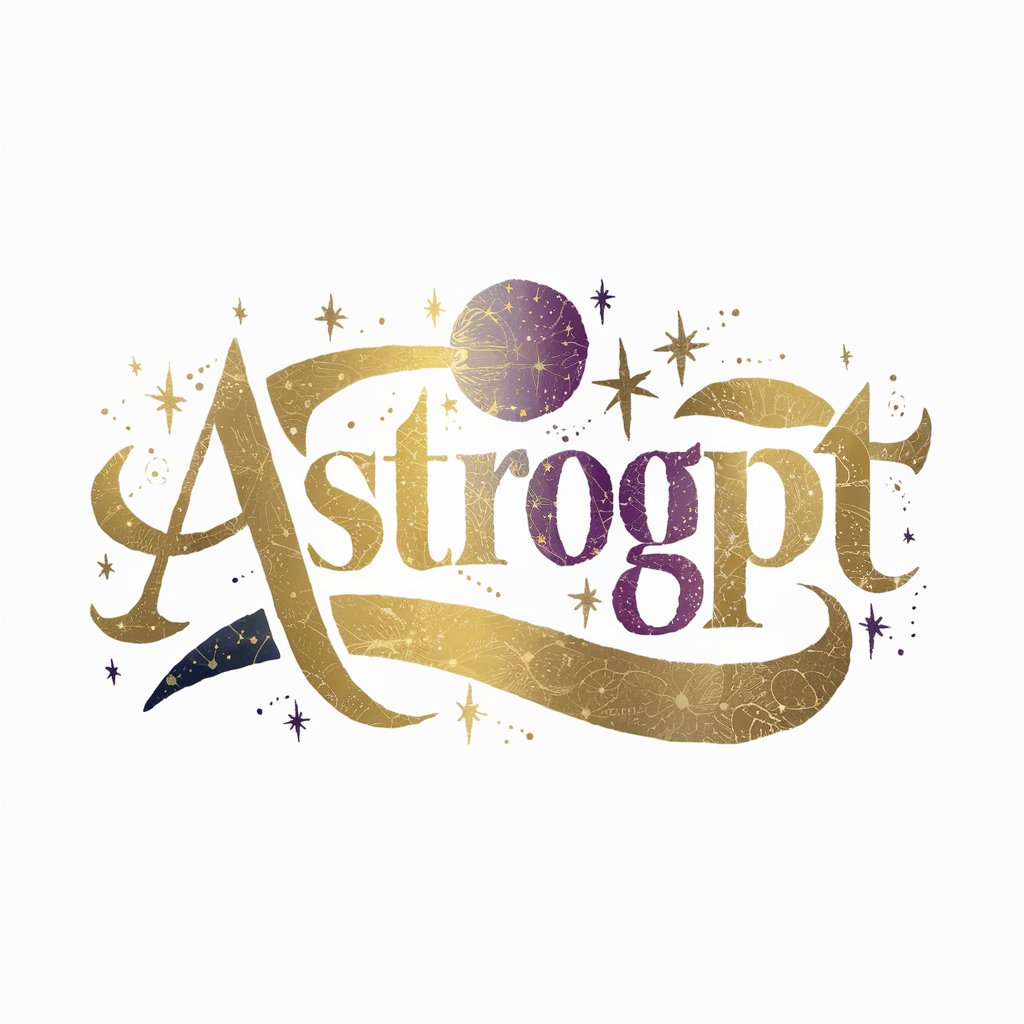
Ai4 Personalizable Gift Finder
Tailoring gifts with AI precision.

Boiler & Heater Pro
Your AI-powered Heating Guide

Frequently Asked Questions about Software Test Engineer
What testing methodologies does Software Test Engineer support?
Software Test Engineer supports a wide range of testing methodologies, including unit testing, integration testing, system testing, and acceptance testing. It offers tools and frameworks to facilitate manual and automated testing approaches.
Can Software Test Engineer help in automating test cases?
Yes, Software Test Engineer is equipped with features that allow for the automation of test cases. It provides scripting capabilities and integrates with popular testing frameworks to streamline the automation process.
How does Software Test Engineer assist in bug tracking and documentation?
Software Test Engineer offers comprehensive bug tracking and documentation features. Users can log bugs directly through the interface, attach screenshots, and annotate issues. It also facilitates the generation of detailed bug reports for stakeholders.
Is Software Test Engineer suitable for Agile development environments?
Absolutely. Software Test Engineer is designed to be agile-friendly, supporting continuous integration and continuous delivery (CI/CD) practices. It enables teams to implement shift-left testing strategies and fosters collaboration between developers and testers.
How can beginners start using Software Test Engineer effectively?
Beginners should start by familiarizing themselves with basic testing concepts and methodologies. They can then explore Software Test Engineer's documentation and tutorials to understand its features. Starting with simple test cases and gradually moving to more complex scenarios is recommended for an optimal learning curve.
